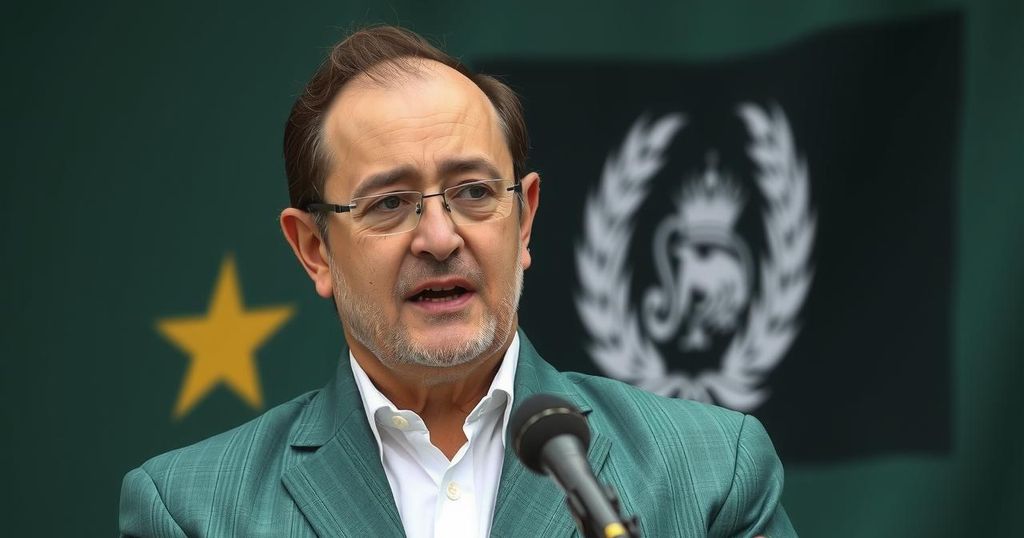South Africa’s Sports Minister Advocates Boycott of Afghanistan Cricket Match

South Africa’s Sports Minister Gayton McKenzie calls for a boycott of Afghanistan in the ICC Champions Trophy, urging Cricket South Africa not to participate in their match on February 21, citing the Taliban government’s oppression of women’s rights. The sentiment is echoed by over 160 British politicians advocating for England’s boycott against Afghanistan on February 26.
South Africa’s Sports Minister, Gayton McKenzie, has joined the growing calls for a boycott of Afghanistan during the ICC Champions Trophy scheduled to be held in Pakistan. He has specifically urged Cricket South Africa to reconsider its fixture against Afghanistan on February 21. McKenzie expressed that the decision should transcend governmental authority and emphasized the moral implications of competing against a nation that has undermined women’s rights under Taliban rule.
The call for a boycott comes amidst significant pressure on England and South Africa, both of whom are grouped with Afghanistan in the tournament. McKenzie highlighted the importance of the message that cricket, as a sport, should convey regarding equality and justice, particularly for women in sports. He stated, “As a man who comes from a race that was not allowed equal access to sporting opportunities during Apartheid, it would be hypocritical and immoral to look the other way today when the same is being done towards women anywhere in the world.”
Over 160 British politicians have expressed their support for a boycott of England’s match against Afghanistan, set for February 26 in Lahore, through a cross-party letter directed to the England and Wales Cricket Board (ECB). Richard Gould, the ECB chief executive, has called for a consistent stance among all cricketing nations regarding Afghanistan’s participation. Meanwhile, Australia has also faced scrutiny after initially postponing a bilateral series with Afghanistan but later competed against them in World Cup fixtures.
The backdrop to this controversy is the Taliban’s return to power in Afghanistan in August 2021, which has led to severe restrictions on women’s rights, particularly in sports. The international cricket community is grappling with how to respond to these human rights concerns. The upcoming ICC Champions Trophy serves as a platform for nations to express their positions through their participation in the tournament. The debates around boycotts not only reflect sportsmanship but also underline the intersection of politics and ethics in international relations.
In summary, the discourse surrounding the boycott of Afghanistan in the forthcoming ICC Champions Trophy highlights significant ethical considerations within the sporting world. As various stakeholders, including politicians and officials, advocate for a principled stance against the Taliban’s actions towards women, the decisions made by cricketing bodies will carry substantial weight in shaping the narrative of sportsmanship and human rights globally.
Original Source: www.aljazeera.com








